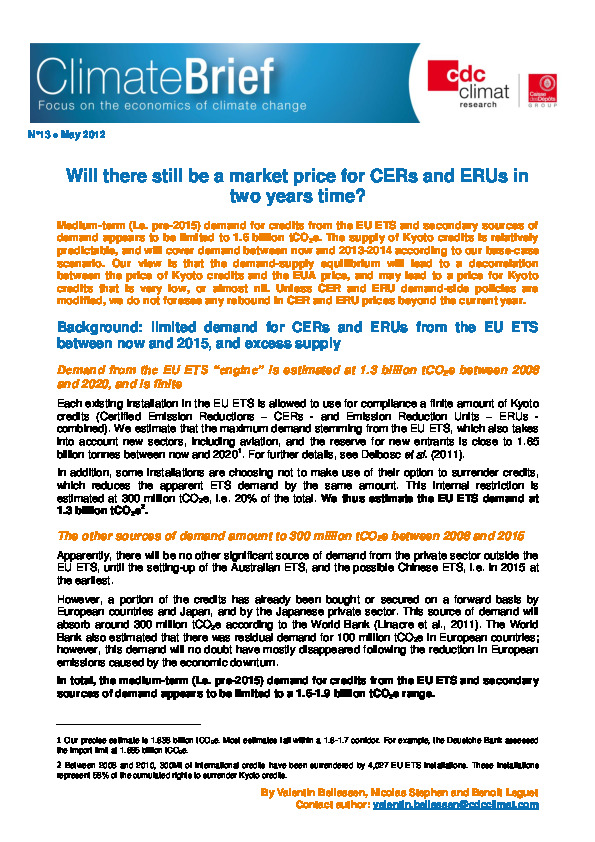Will there still be a market price for CERs and ERUs in two years time?
Medium-term (i.e. pre-2015) demand for credits from the EU ETS and secondary sources of demand appears to be limited to 1.6 billion tCO2e. The supply of Kyoto credits is relatively predictable, and will cover demand between now and 2013-2014 according to our base-case scenario. Our view is that the demand-supply equilibrium will lead to a decorrelation between the price of Kyoto credits and the EUA price, and may lead to a price for Kyoto credits that is very low, or almost nil. Unless CER and ERU demand-side policies are modified, we do not foresee any rebound in CER and ERU prices beyond the current year.

